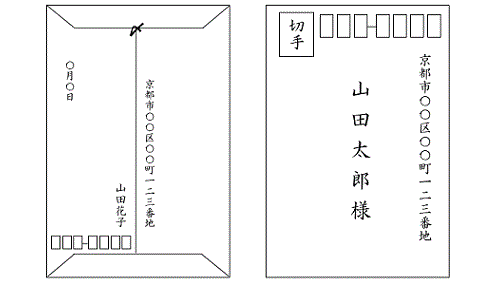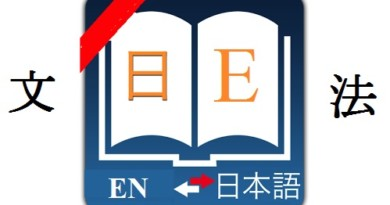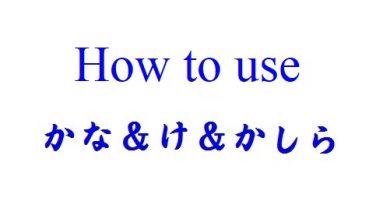Write a letter in Japanese – Popular expressions
Writing letters is very important to Japanese people, because they respect the rituals and rules of using envelopes and writing the names of recipients outside the envelope. Therefore, the content of the letter is even more important. In this post, we will introduce to you the lesson: Write a letter in Japanese – Popular expressions.

Note: Every letter usually has the same structure. The body of a Japanese letter mainly has formal writing. That means it uses a lot of honorifics (except for familiar relationship).
Contents
Heading
拝啓 (Haikei) : Dear Sir, Dear Madam.
Example :
田中様 (Tanaka sama)
拝啓 お手紙どうもありがとうございました。(haikei otegami dōmo arigatō gozaimashita.)
Dear Mr. Tanaka
Thank you for your letter
Preamble
This is an important part before getting into the main content. Try some ways like:
お元気ですか。(Ogenki desu ka) How do you do?
Or you can use some ways that are more formal as follows :
お元気でいらっしゃいますか。(Ogenkide irasshaimasu ka.) How are you?
お手紙ありがとうございました。Thank you for your letter
お久しぶりです。(Ohisashiburi desu) Long time no see. Or using a more formal way : ご無沙汰しております gobusata shite orimasu : It has been a long time since I last contacted you.
早速の返事ありがとうございました。(Sassoku no henji arigatōgozaimashita.)
Thank you for your prompt reply.
お返事が遅れて、失礼いたしました。(O henji ga okurete, shitsurei itashimashita.) : Sorry for the late reply.
突然のメール、失礼いたします。(Totsuzen no mēru, shitsurei itashimasu.)
Sorry for the sudden email / mail.
お忙しいところ大変申し訳ございませんが、(O isogashī tokoro taihen mōshiwakegozaimasen ga): I am very sorry to trouble you when you are busy, but…
Thanks
When writing a letter in Japanese to thank someone, you can use the following sentences:
心より御礼申しあげます。(Kokoroyori orei mōshiagemasu.): I sincerely thank you.
誠にありがとうございました。(Makotoni arigatōgozaimashita.): Thank you very much.
おかげさまで … (Okage-sa made): Thanks to you…
…..深く感謝しております。( ….Fukaku kansha shite orimasu.) : I deeply appreciate…
胸がいっぱいになりました。(Munegaippai ni narimashita.) : My chest was filled with emotion.
Apology
申し訳ありませんでした。(Mōshiwake arimasendeshita.) I am sorry.
…..お詫び申し上げます。(….Owabi mōshiagemasu.) I apologize.
ご迷惑をおかけしました。(Gomeiwaku o okake shimashita.) I apologize for the inconvenience.
大変ご心配をおかけいたしました。(Taihen go shinpai o okakeitashimashita.)
I’m so sorry for worrying you.
….お恥ずかしいかぎりです。(…O hazukashī kagiridesu.) I feel ashamed because…
不注意で …(Fuchūi de) Because of my carelessness…
Greeting at the end of the letter
….によろしくお伝えください。(…Ni yoroshikuotsutaekudasai.) Please give … my regards.
お返事お待ちしております。(O henji omachi shite orimasu.) I look forward to your reply.
どうぞよろしくお願いいたします。(Dōzo yoroshikuonegaītashimasu.) Thank you very much.
ご質問、ご不明な点がございましたらお気軽にお問い合わせください。
(Go shitsumon, go fumeina ten ga gozaimashitara o kigaru ni o toiawase kudasai.) If you have any questions, please feel free to contact me.
敬具 (Keigu) Yours sincerely
Some other useful phrases
Here are some sentences that you will often use when writing a letter in Japanese:
とても助かりました。(Totemo tasukarimashita.) It was very helpful.
大変お世話になりました。(Taihen osewaninarimashita.) Thank you so much for all the help you have given me.
….していただけませんでしょうか。(Shite itadakemasendeshou ka.) Would you please…
いただければ幸いです。(Itadakereba saiwaidesu.) I would be grateful if you can…
…楽しみにしております。(Tanoshimini shite orimasu.) I’m looking forward to…
誠におめでとうございます。(Makotoni omedetōgozaimasu.) Congratulations.
Write a letter to someone asking about their health
To write this letter, in addition to the instructions above, you can apply the following sentences:
その後お変わりございませんか。おうかがい申し上げます : Is there any change after that?
皆様にお変わりはございませんでしょうか : Is there any change?
皆様いかがお過ごしでしょうか : How is everyone doing?
すっかりご無沙汰してしまいましたが、お変わりありませんか?It has been a long time since I last contacted you, how are you?
元気でやっていますか?Are you doing well?
ご家族の皆様お変りなくお過ごしでしょうか?How is your family?
お変りなくいらっしゃいますか Are you well?
ご一同様にはいかがお過ごしでしょうか : How is everyone?
その後お変わりはございませんでしょうか : Is there any change after that?
….さんには、いかがお過ごしでしょうか?Mr. …, how are you doing?
ご機嫌いかがでございますか : How is your health now?
ご様子はいかがでしょうか : How is your state?
お健やかにお過ごしでございましょうか : Are you healthy?
Write an email to apologize in Japanese
Some apologies using honorifics :
申し訳ありませんでした→ stronger nuance : 本当に申し訳ございませんでした : I’m very sorry.
多大なご迷惑をおかけして、心から申し訳なく存じます。I’m very sorry for the inconvenience.
お返事が遅れてすみませんでした。Sorry for the late reply.
お約束していましたのに急用で不在をし、大変失礼いたしました。I’m very sorry that I promised but I was absent due to an emergency.
皆様には大変ご迷惑おかけしましたことを深くお詫び申し上げます。I deeply apologize for all the trouble I caused to you.
お再度のミスを犯し、お詫びの申し上げようもございません。I can’t find words to express my apology for making another mistake.
Promise not to make that mistake again in Japanese
不注意であったと、反省いたしております。I am sorry for being careless.
深く反省しております。I am deeply rethinking things over.
私の不徳のいたすところと、猛省(mousei)しております。I feel very bad for my immorality.
このたびの不祥事 (fushouji)、たいへん遺憾 (ikan) に存じます。I am very sorry for this scandal.
ご指摘いただきありがとうございます。肝 (kimo) に銘 (mei) じておきます。Thank you for pointing that out. I will keep that in mind.
このようなことを繰り返さないように、以後、気をつけます。I will be careful not to repeat this.
Answer the questions from readers :
How to say “I am looking forward to your help” in Japanese?
In an informal situation, we can say : よろしくね (yoroshikune). We can say in a more polite way : どうぞよろしくおねがいします (douzo yoroshiku onegai shimasu). In an formal situation where we need to use honorifics, we can say : どうぞよろしくお願い致します (douzo yoroshiku onegai itashimasu) or we can say in a very polite way : 何卒宜しくお願い致します (nanitozo yoroshiku onegai itashimasu).
How to say “Sorry for the inconvenience” in Japanese?
この度はご不便をおかけし、申し訳ございません (konotabiha gofuben wo okakeshi, moushi wake gozaimasen : Sorry for the inconvenience this time.
“Dear ~” in Japanese
Japanese people write [the name + sama/dono], and then write [拝啓] under the name’s line.
Above is : Write a letter in Japanese – Popular expressions. Of course, these are just some sentences and rules when writing a letter in Japanese in a social way or for work, when writing to close friends, the writing style can be more intimate. Wish you all good study.


